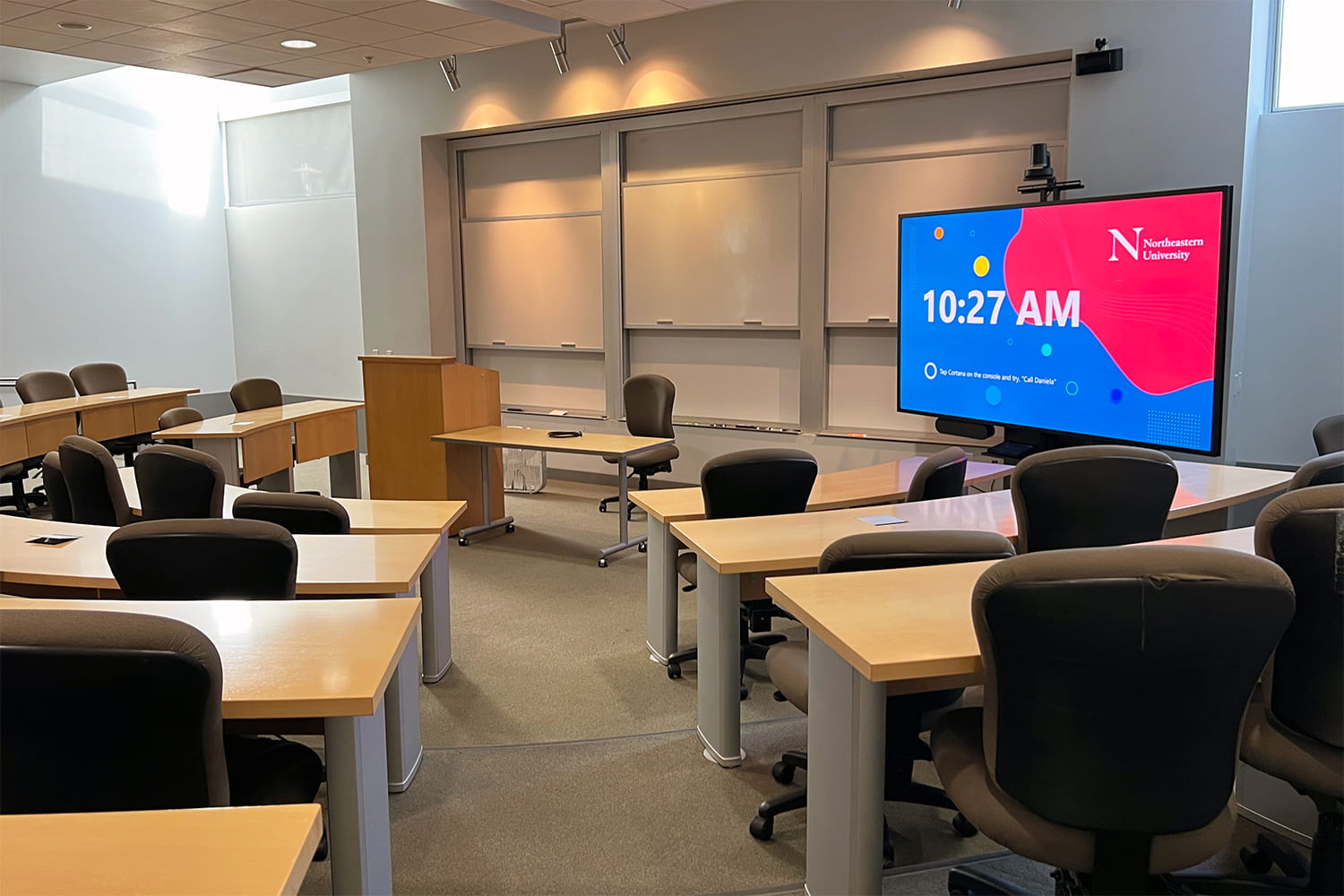
Before the start of the 2021-22 academic year, Kris Jaeger-Helton, teaching professor and director of Senior Capstone Design for the Industrial Engineering program in the College of Engineering, was seeking new opportunities to infuse more engagement and technical clarity into her engineering courses. Driven by her desire to continuously improve and effectively adapt to changes in the classroom—especially those in response to restrictions imposed by the COVID-19 pandemic—Jaeger-Helton explored the use of tablets in her teaching.
An Opportunity to Learn and Grow
Excited by the fall 2021 announcement of the Transforming Teaching with Tablets (TTT) program, Jaeger-Helton applied for a spot in the pilot. Although she had never used a tablet and was unfamiliar with its capabilities, she felt welcomed by the invitation. She entered the TTT pilot program with enthusiasm, ready to make the most of this innovative opportunity.
Offered by Information Technology Services’ Academic Technologies in collaboration with the Center for Advancing Teaching and Learning through Research (CATLR), the TTT pilot program provided educators with training, support, and personalized instruction for integrating a tablet into their courses and using apps to best meet their teaching goals. To help inform future offerings, the selected participants were also encouraged to provide feedback on the TTT program during the course of the term.
Despite her lack of experience with tablets, Jaeger-Helton found that Academic Technologies expertly guided participants to understand the tablet as a tool for expanding opportunities, rather than to compare it to other devices.
“I discovered several apps and methods I may not have known about or considered before, Jaeger-Helton said. “Even if something new didn’t work perfectly, the students still reaped benefits and seemed to appreciate the effort.”
An invaluable aspect of the program, she felt, was that it catalyzed a new strand of creative thinking, yet untapped, in herself: “As engineers, we tend to outline problems and then research and develop solutions. Because of TTT, in many cases, I started with a solution—the tablet with its toolset—and identified great ‘problems’ it could authentically solve!”

Creating Interactive Student Experiences
In her classes, Jaeger-Helton integrated tactics learned in the TTT program to transform familiar activities into interactive experiences that guide students to engage more productively. In Senior Capstone Design, for example, she replaced physical sticky notes with online Miro boards during in-class collaboration activities. Doing so allowed student teams to continue to collaborate outside of class and to refer back to their work throughout the semester.
Tablet in hand, Jaeger-Helton can move about the classroom during these activities, providing feedback on the groups’ Miro boards. In addition, she can easily go back and analyze the Miro boards to compare different classes and identify patterns in project profiles from semester to semester.
In her Human-Machine Systems course, Jaeger-Helton was able to move more freely within the classroom and to offer the tablet as an inclusive writing space. In turn, students could participate in certain activities without having to walk up to the whiteboard.
Status Checks: Questions, Feedback, and Self-Assessment
Jaeger-Helton also used a digital polling solution, Poll Everywhere, so that her capstone students could anonymously ask questions about various concepts in her Simulation Modeling & Analysis course. The activity, which encouraged learners to ask questions they otherwise might not have asked, allowed her to move about the room during class sessions and to respond to questions in real time.
In addition, Jaeger-Helton created word clouds through Poll Everywhere during class to survey Simulation students’ current comprehension of concepts, as well as their thoughts and opinions on course pace and certain course topics. In each use case, Jaeger-Helton could easily visualize a summary for the class to provoke further discussion with students and to inform course adjustments.
Jaeger-Helton’s belief in the value of feedback and user data prompted her to create a pair of customized touch-screen poll-in and poll-out student-sentiment checks for her optional drop-in lab hours. As a result, she could analyze the data quickly and get a feel for students’ mindsets, as well as monitor the success of open lab times.
From this practice Jaeger-Helton learned that students who attended open lab times showed improvement in technical comprehension and increased confidence with the material. Using their own data, she would then circle back to the class to show the students the value of attending these working sessions.



Becoming a Mentor
Based on her experience in the fall 2021 pilot cohort, Jaeger-Helton was selected as a TTT mentor for the spring 2022 TTT program. The mentor program provides opportunities for instructors who participated in the pilot program to encourage and share insights with other instructors as they grew in their understanding of how tablets can support their teaching and learning practice.
In the TTT Community of Practice, participating instructors come together to explore tablets both as a topic of inquiry and in practice, ask each other for advice, and share their experiences. By the numbers, the community was a success. A full 100% of spring term participants reported seeing their fellow instructors use the tablet in inspiring ways.
“If you would like to do a better job, try new ways to upgrade your courses, and engage your students in more meaningful and memorable ways, connect with the academic technology specialists at Northeastern,” said Jaeger-Helton, encouraging instructors who may be unsure about participating in programs like the TTT pilot. “They will help you explore opportunities to take your education to a new level, and students will benefit from and appreciate it, as well.”
